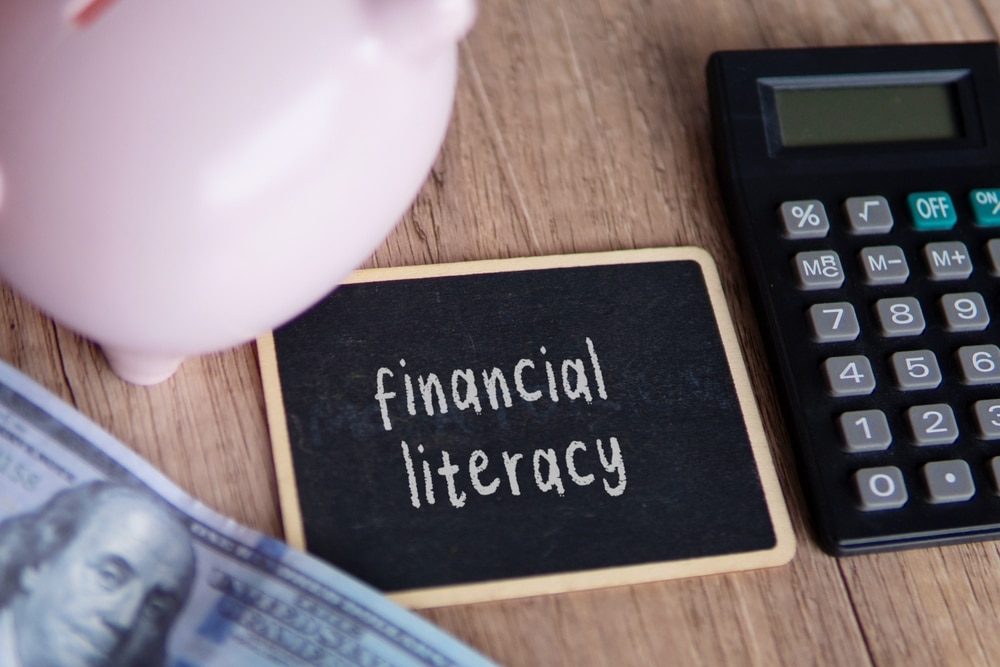Everyone who wants to achieve financial freedom strives to be financially literate as they know that education is the only key to success. Most of them want to learn how to budget their income properly and make the right investments. Are you aiming to be financially literate? This article covers everything you need to know about financial literacy. Keep reading to learn more.
Understanding Financial Literacy
Considering the importance of money in our lives, a lack of financial literacy can prove to be damaging to an individual’s financial success. Despite this fact, research conducted by the Financial Industry Regulatory Authority in 2023 showed that over 60% of Americans are still financially illiterate.
Not having the right financial education can lead to several pitfalls. For example, you are likely to accumulate more debt due to poor decisions when it comes to spending money. With more debt to settle, you may lose assets you offered as collateral.
📈🤖 Unlock unparalleled trading potential with GPT Stocks Master AI! Revolutionize your portfolio, leveraging real-time insights and predictive analytics. Don’t miss out – step into a world where precision and profitability meet. Ready to transform your trading journey? Click “Master My Trades” now for your exclusive access! ✨🚀📊
Thankfully, the Internet provides access to a wide pool of educational resources to help you learn how to handle your finances better.
Scope of Financial Literacy
The most popular skills under the financial literacy umbrella include debt management, household budgeting, and analyzing the tradeoffs between various investment and credit products. Such skills will require you to have knowledge of major financial concepts like the time value of money and compound interest.
By becoming financially literate, you will be able to understand the impact of your current investment decisions on your tax liabilities over the coming years. Moreover, having the appropriate financial knowledge helps you to identify the best investment vehicles for saving.
What Are the Benefits of Financial Literacy?
Financial literacy prevents you from making damaging mistakes – When you become financially literate, you are likely to avoid making some devastating mistakes. For example, you wouldn’t take a floating rate loan knowing that the lender may impose a different rate every month.
Financial literacy helps individuals prepare for emergencies – If you understand financial literacy subjects like emergency preparedness and savings, it will cushion you from unexpected events such as losing your job.
Financial literacy helps people achieve their goals – Learning to save money and how to budget your income properly increases your odds of achieving your long-term goals.
Financial literacy boosts confidence – When you are armed with the right knowledge regarding finances, you are likely to approach financial issues with great confidence.
Strategies to Improve Your Financial Literacy Skills
Create a Budget
Using a free-to-use budgeting tool, you can track the money you receive every month against the amount you spend. Your monthly can come from investments and paychecks. In your budget, include fixed expenses like utilities, rent, and loan repayments. Also, include optional expenses, such as leisure travel and eating out.
Pay Yourself First
You need to choose a savings goal and then decide the amount of money you want to aside every month to achieve that goal. This money should be deducted immediately after you receive your monthly income.
Pay Bills on Time
Settle your monthly bills on time. You can do this by creating payment reminders or automating bill payments on your bank account.
Request Your Credit Report
Three leading credit bureaus, TransUnion, Equifax, and Experian, allow consumers to request credit reports once a year for free. You can take this opportunity to review your credit report and raise a dispute with the credit bureau in case you detect any errors.
Check Your Credit Rating
A good credit score allows you to secure loans at the best interest rates. You can monitor your credit rating through various credit monitoring platforms. This helps you to avoid making financial decisions that might lower your credit score.
Manage Debt
To settle your debt quickly, it is advisable to reduce your spending and allocate more funds towards loan repayments. Also, you can develop a loan repayment loan, which allows you to prioritize repaying loans with the highest interest rates.

